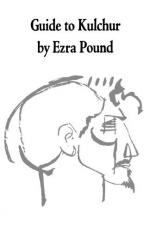
|
| Name: _________________________ | Period: ___________________ |
This test consists of 5 short answer questions, 10 short essay questions, and 1 (of 3) essay topics.
Short Answer Questions
1. What aspect of Greek epics have been given insufficient attention, according to Pound?
2. What percentage of the time should one not respond to criticisms of one's artwork?
3. The first essay in Section I is called "______ of the Analects."
4. What makes many great Greek tragedies boring, according to the author?
5. What is the second essay in Part IV, Section VII?
Short Essay Questions
1. Why does Pound say he created "Digest of the Analects?"
2. What does Pound say about code-worship in "Books 'About'"?
3. Give an example of aesthetic criticism in "Guide to Kulchur".
4. What does Pound say about the lowest noises that can be heard?
5. Why did the Catholic Church lose to Luther, according to Pound?
6. What does Pound say about professional philosophers before and after Liebniz?
7. What is the purpose of the essay "Guide?"
8. What does Pound say about old philosophy in comparison to men of his age in "Totalitarian?"
9. How does Pound feel about "The New Learning?"
10. Why does Pound say Jefferson was wise in "Human Wishes?"
Essay Topics
Write an essay for ONE of the following topics:
Essay Topic 1
What is the message Pound conveys in "Guide to Kulchur"? Explain at least three ways he achieves this.
Essay Topic 2
Explain "And Therefore Tending." Why does Pound choose to include this in "Guide to Kulchur" when it could have stood on its own as an independent work?
Essay Topic 3
Explain Pound's perspective on Confucius and Chinese culture. What specific benefits does he associated with studying Chinese history and culture?
|
This section contains 625 words (approx. 3 pages at 300 words per page) |

|




